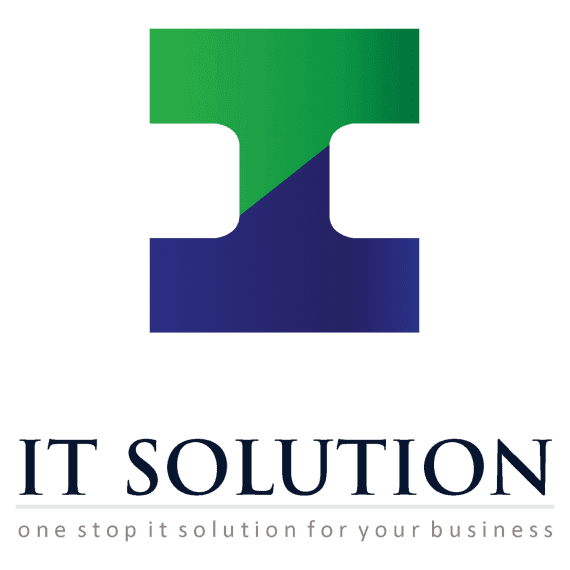Technology is evolving faster than ever, bringing exciting changes across various industries. This year, 2025, promises to be a turning point with groundbreaking IT trends taking the forefront. These innovations are set to reshape how businesses operate and how we go about our daily lives.
Artificial intelligence continues to push boundaries, while quantum computing introduces new ways to crunch complex data. The focus on cybersecurity remains crucial, ensuring that data and systems stay protected against evolving threats. In addition, the Internet of Things expands its reach beyond homes, impacting entire cities and industries.
These trends highlight how technology interweaves with our lives and business practices. As these advancements unfold, they present both challenges and opportunities. Businesses and individuals alike can prepare to embrace these changes, making the most of what technology has to offer in this rapidly changing world.
Advancements in Artificial Intelligence
Artificial intelligence continues to grow rapidly, creating new tools and applications that reshape our interactions with technology. In 2025, AI’s capabilities have expanded significantly, offering smarter, more efficient solutions across various sectors. AI tools like natural language processing systems can understand and respond to human speech more accurately than ever, paving the way for innovative applications in customer service and support.
Several industries are seeing significant transformations thanks to AI. In healthcare, AI-assisted diagnostics help doctors identify diseases faster and more accurately, improving patient outcomes. In finance, AI-driven algorithms detect fraudulent transactions and manage risk more efficiently, safeguarding assets and optimising operations. These advancements improve efficiency and enhance decision-making processes, making AI a critical asset in today’s business landscape.
Looking ahead, potential AI innovations in 2025 might include more advanced autonomous vehicles, AI-powered personal assistants with enhanced emotional intelligence, and further developments in AI-driven creativity applications. Such innovations could profoundly change daily life, as well as professional environments. As AI becomes more capable, it will handle even more complex tasks, providing both immense opportunities and ethical considerations for businesses and individuals to navigate.
Rise of Quantum Computing
Quantum computing represents a leap from classical computing, offering new ways to solve complex problems. Traditional computers use bits that represent 0s and 1s. In contrast, quantum computers use qubits, which can represent and process information in multiple states simultaneously. This capability allows quantum computers to perform calculations exponentially faster than classical systems.
Several industries are poised to benefit from quantum advancements. Finance could see major gains in risk analysis and portfolio optimisation. Pharmaceuticals might achieve breakthroughs faster with quantum simulations of molecular structures. Even logistics could become more efficient with advanced optimisation of supply chains and processes.
Despite its potential, quantum computing presents both challenges and opportunities. One significant challenge is developing stable quantum systems since they are highly sensitive to environmental factors. Opportunities lie in solving problems that are currently intractable with classical computers, opening doors to new discoveries and efficiencies.
Quantum computing’s rise requires careful navigation of these challenges but holds the promise of unprecedented progress across various sectors. As research and development continue, more industries will likely explore and harness quantum technology, driving innovation and growth alongside emerging quantum capabilities.
Increased Focus on Cybersecurity
Businesses face new cybersecurity threats in 2025, driven by more sophisticated cyber-attacks. Hackers use AI to automate attacks, making them faster and harder to detect. This results in increased risks to data integrity and privacy for companies around the world. With cyber threats evolving, it becomes essential to prioritise cybersecurity and protect sensitive information.
Cybersecurity technology trends in 2025 include AI-driven protection systems and zero-trust security models. AI-driven systems use machine learning to identify vulnerabilities and respond to threats in real-time, offering a proactive approach to defence. Zero-trust models work on the principle of “never trust, always verify,” requiring strict identity checks before granting access to resources, which enhances overall security.
Staying ahead with robust security measures is necessary for all businesses. This involves implementing multi-layered security systems and regularly updating software and protocols. Employee training also plays a vital role in strengthening cybersecurity, ensuring that all team members understand and adhere to security practices.
The focus on cybersecurity highlights the importance of staying vigilant against evolving threats. By adopting the latest technologies and strategies, businesses can safeguard their assets and maintain the trust of their customers and partners.
Expansion of the Internet of Things (IoT)
The Internet of Things is rapidly growing, extending beyond smart homes to encompass smart cities and industries. IoT devices now monitor and control various aspects of urban infrastructure, such as traffic lights, waste management systems, and energy grids. Smart cities aim to enhance the quality of life for residents by optimising resource use and improving services.
IoT impacts everyday life and business operations by connecting different devices and systems. In industries like manufacturing, IoT enables real-time monitoring of equipment and predictive maintenance, reducing downtime and improving efficiency. Retail businesses use IoT for inventory management and customer engagement, streamlining operations and improving the shopping experience.
Innovative IoT devices emerge continuously, offering potential uses for businesses. These include smart sensors that gather data to improve decision-making processes, connected wearables that monitor employee health and safety, and advanced drones for delivery services. As technology evolves, businesses must consider how IoT can enhance their operations and competitiveness.
The expansion of IoT presents new opportunities for efficiency and innovation. By embracing IoT technologies, businesses can improve processes and create smarter environments that improve the quality of both work and life.
Conclusion
Staying informed on the latest IT trends is essential for harnessing new technologies to drive growth and innovation. Advancements in AI, quantum computing, cybersecurity, and IoT demonstrate how rapidly the tech landscape evolves, offering exciting opportunities and challenges. As these trends unfold, businesses and individuals must prepare to adapt and make informed decisions to benefit from these technologies.
Whether it’s improving efficiency with AI, exploring quantum computing applications, strengthening security measures, or integrating IoT devices, each trend brings unique advantages. By understanding and embracing these changes, organisations can ensure they remain competitive and forward-thinking in an ever-changing world.
Explore how IT Solution can partner with you to navigate these exciting IT trends. Our expertise in IT support and crafting cutting-edge solutions supports your journey towards innovation and effectiveness. Contact IT Solution today to discover ways to leverage these technologies for a brighter, more connected future.








